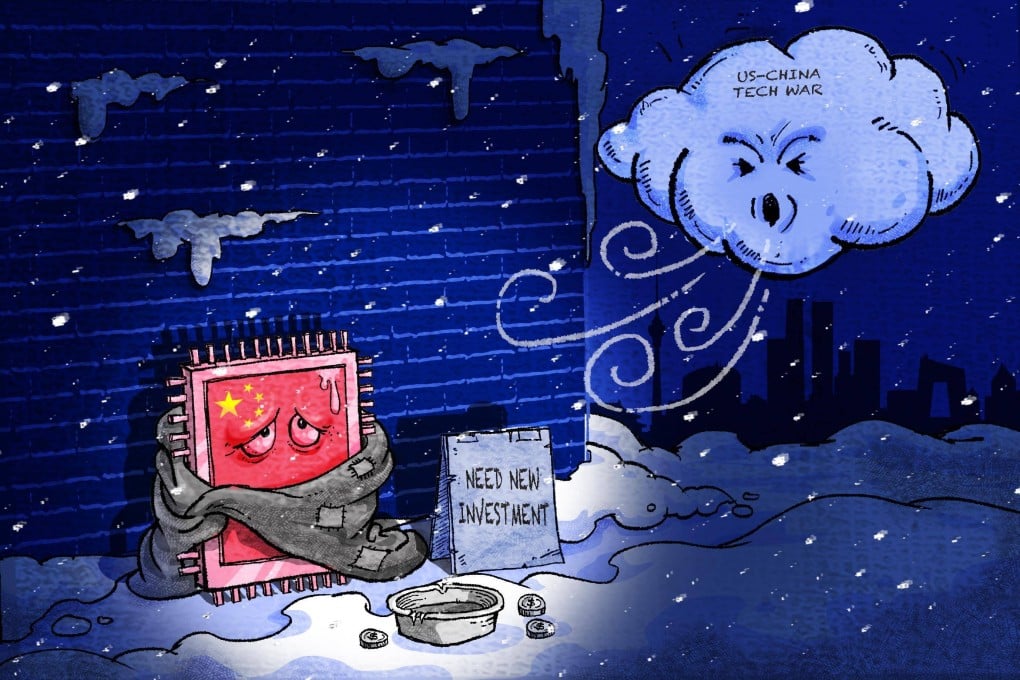China’s chip executives brace for winter as US sanctions push country’s semiconductor industry to the brink of desperation
- At first, US sanctions helped trigger a boom in China’s chip industry as firms pushed to meet Beijing’s call for technological self-reliance
- Most executives from Chinese chip firms predict that 2023 will be worse than this year, adding that they are ‘preparing for winter’

On a recent Wednesday afternoon in Shanghai, the founder of a semiconductor start-up spotted the head of a well-known chip venture capital firm near the elevator at an industry event - and grabbed the chance for a 60-second “elevator pitch”. The venture executive walked away and the entrepreneur was left with a sense of foreboding.
“I’ll run out of money soon if there’s no new investment,” said the founder, who declined to be named because of the sensitivity of the topic. “It is not as easy as two years ago, when [former US president Donald] Trump first started to impose sanctions on the industry and largely hyped up the semiconductor investment circle in China,” he told the South China Morning Post.
The start-up founder is just one of many Chinese chip entrepreneurs trying to find shelter from the storm that has hit the country’s chip industry. The galvanisation of the industry that came in the face of earlier US sanctions has turned to desperation after Washington ratcheted up restrictions. Now, all Chinese chip companies are bracing for a tough year ahead.
Last year alone, China added 592 chip design firms, or about 11 new start-ups per week. Chinese semiconductor-focused cities like Shanghai, Beijing, Shenzhen, Wuxi and Nanjing had a total of 2,810 such firms by the end of the year.